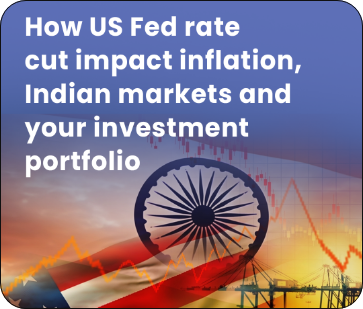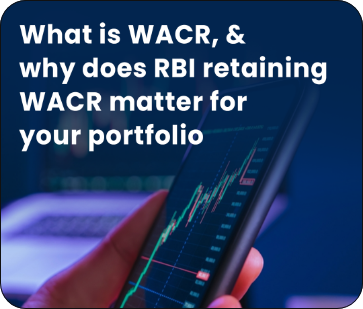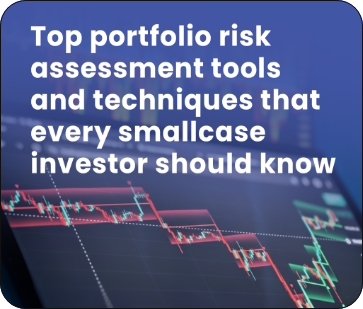
How India-Pakistan conflicts impact the stock market
Armed militants opened fire on tourists in Baisaran near Pahalgam — a horrifying ambush that killed 26 civilians, including families on vacation. It was the deadliest such attack since 26/11.
The attack caused not just national outrage but also ignited a direct military response.
India responded with Operation Sindoor, a calibrated strike across the LoC. Pakistan retaliated with drone assaults near Rajouri.
By the next morning, headlines screamed of escalation, making Investors brace for the impact.
Nifty 50 dipped over 1.5%. The rupee slipped. Defense stocks shot up.
But panic didn't follow. Why?
Because we've seen this before. Kargil, Uri, Balakot — conflict brings volatility, but rarely collapse. This time too, the Indian markets blinked, adjusted, and held their ground.
Meanwhile, Pakistan's KSE-100 fell over 9%. That's the geopolitical risk premium at work.
Yet again, India's market proved something! The economy may pause for conflict, but it rarely folds.
In this article, we investigate further how such geopolitical conflicts, particularly India-Pakistan, impact the Indian stock market, and what investors should do.
Table Of Contents:
Why do geopolitical conflicts affect stock markets?
Markets are emotional. They may look like spreadsheets and charts, but at their core, they respond to fear and clarity, often in that order. And when geopolitics enters the chat, clarity exits the room.
When tensions rise between nations, especially neighbours with military histories like India and Pakistan, investors don't wait for war declarations. They react to headlines, troop movements, and political posturing. The result? A short but sharp spike in volatility.
Uncertainty is worse than bad news
Markets don't wait for war! They react to the possibility of one. A conflict, or even the threat of escalation, throws a wrench into predictable cash flows and stable risk assumptions. When predictability disappears, equity markets pull back—even if actual fundamentals remain unchanged.
Volatility spikes first
After the Pulwama attack in 2019, the India VIX, a volatility index jumped over 12% within days. Price action on the surface looked calm, but under the hood, option premiums were in chaos. Volatility is always the early warning signal.
Foreign investors exit fast
To global funds, India and Pakistan are just pieces in the emerging markets puzzle. When border tension rises, funds rotate capital to safer markets. After the Balakot airstrikes, FIIs sold ₹6,200 crore worth of equities in just three trading sessions. Domestic investors often step in, but not without short-term shocks.
The rupee weakens under pressure
Cross-border conflicts hurt investor confidence, and the rupee reflects that. A falling rupee raises the cost of imports and stirs inflation fears. If oil prices are also rising during this time, the macro picture gets more complicated for policymakers.
Not all shocks disrupt fundamentals
Tensions between India and Pakistan rarely evolve into long, economically damaging wars. Most incidents like Uri, Pulwama, or Balakot trigger sentiment-led corrections, not fundamental breakdowns. And the market tends to recover once the event is perceived as contained.
What can investors do amidst geopolitical tensions? Well, you can choose a strategic smallcase portfolio that relies on data, such as PINC Momentum Fundamental, offering stocks where visibility in earnings continues for the next 4 to 6 quarters. Leverage fundamental strength and price momentum to combat market volatility instead of reacting.
Historical timeline of conflicts with its market impact
1999: Kargil
War broke out in the icy mountains of Kashmir. Yet, Nifty jumped 7% three days into the war and ended up 35.6% higher by the end of the conflict.
Reforms were kicking in. The economy was liberalizing. And investors were betting on long-term growth, not short-term battles.
Also, the markets had already corrected in 1998 during the Asian financial crisis. In hindsight, Kargil was noise, not narrative.
2001: Parliament attack
India mobilized troops along the border. War felt imminent. But the markets barely flinched.
Geopolitical tension? Yes. But it was 2001, the post-dot-com bust and post 9/11. Investors had bigger worries. Capital was still flowing in. The story went global.
2008: Mumbai attacks
Terror in Mumbai. A horrifying 60 hours. But the Nifty went up 3.8% during the operation. Why?
Because it happened in the middle of a financial crisis. By then, the Lehman collapse had already done the damage. Investors were desensitized to headlines, even tragic ones.
Foreign investors actually bought Indian equities worth $151 million during the attack week. Absurd? Maybe. But the logic was clear- India's consumer story was intact. The terror was real, but markets looked beyond.
2016: Uri attack & surgical strikes
This was a turning point. India changed posture, from reactive to proactive. It responded with surgical strikes. The market dipped 1.76% (Nifty) on the same day but recovered within days.
Why the bounce? Certainty. Markets dislike surprises, not assertive policy. When India responded decisively, volatility cooled fast.
2019: Pulwama & Balakot
This one stung. The Nifty logged a nine-day losing streak, which is the longest in eight years. FPIs pulled ₹6,200 crore in just 72 hours. The VIX spiked to 20.
But then something familiar happened. The market bottomed. In less than a month, it climbed back. Because conflict doesn't last. Elections were around the corner. And India Inc. was showing green shoots. Investors recalibrated.
2025: Operation Sindoor
When India launched Operation Sindoor in 2025, markets dipped around 1.5% amid rising tension. Panic was visible but short-lived. Within weeks, the Nifty recovered as ceasefire talks eased fears. The familiar pattern played out, which is a quick drop followed by a faster rebound. Because India's market resilience runs deeper than temporary geopolitical shocks.
The impact of the India-Pakistan conflict
So, do India-Pakistan conflicts really hurt the market? Let's get to the bottom of it!
The hit is visible but shallow. Market dips usually last between one and ten days before a quick recovery.
- Defense stocks tend to outperform during conflict-related market shocks.
- Foreign investors often temporarily halt buying but rarely exit completely.
- The economic impact of India-Pakistan conflicts is more sentiment-driven than fundamental.
- Market volatility rises sharply but stabilizes once tensions ease.
Fundamentals always win
India's stock market isn't a play on politics anymore. It's a bet on consumption, demographics, digital infrastructure, and global supply chain realignment.
The border conflict narrative, while emotionally powerful, doesn't rewrite quarterly earnings. And certainly not long-term compounding stories.
So yes, wars may spook traders. But investors? Well, the smart ones stay put.
You can always premeditate a strategic smallcase investment to avert potential risk and accommodate such volatility. Always consider the best smallcase company with expert-picked thematic stocks to help you stay balanced and positioned for growth during such uncertainty.
What should investors do?
When borders flare, markets twitch. But knee-jerk reactions rarely pay off. Investors need a steady hand! Here's what you should do:
- Avoid panic selling. Market dips during conflicts are often temporary. History shows markets usually recover once tensions ease.
- Focus on quality companies with strong fundamentals. They tend to weather uncertainty better.
- Diversify your investments. Smallcase portfolios offer built-in diversification across sectors and themes to reduce risk.
- Stay informed, but don't get overwhelmed by every headline. Use news as a prompt to review your portfolio, not to make impulsive changes.
- Keep a long-term perspective. Geopolitical tensions create short-term volatility, but patience and discipline often pay off.
Conclusion
Geopolitical conflicts between India and Pakistan have historically led to short-term market volatility but have not derailed long-term growth trajectories.
Investors who remain focused on fundamentals and maintain diversified portfolios are better positioned to weather such events.
At PINC Wealth, we offer investment solutions that combine deep fundamental research with momentum strategies, helping investors navigate uncertainties and achieve their financial goals. Start your investment journey today!
Related Articles

How will the US Fed rate cut impact inflation, Indian markets and your investment portfolio?
US Fed rate cuts influence Indian markets, currency trends, and smallcase stocks. Explore sectors that benefit, risks, and smart investment strategies for 2025.
Know more
What is WACR, and why does RBI retaining WACR matter for your portfolio?
Understand WACR and RBI's revised liquidity framework. Learn how these monetary policy changes impact your smallcase investment and portfolio returns.
Know more
‘Bite-sized’ smallcase investments: Low entry-cost portfolios for new and young investors
Making investment even easier and simpler with ‘bite-sized’ smallcase portfolios. Here’s a guide for beginners on how to start and build long-term wealth.
Know more
Top portfolio risk assessment tools and techniques that every smallcase investor should know
Learn about the top portfolio risk assessment tools and techniques that every smallcase investor should know to analyse and manage the potential risk, and how financial advisors help in this effectively.
Know moreMeet the people
we served!
PINC Compounder Smallcase has simplified my investment journey. Seriously, investing has never been easy for me! Here in a single click, I could access a balanced portfolio. Thanks PINC.
Mr. Akhilesh
I was hesitant about investing, but PINC Smallcase changed that. Talking to their team and looking at their growth gave me confidence. I've seen my investments grow steadily since then. I'm impressed!
Devendra Palan
As someone with limited knowledge about the stock market, I found Pinc smallcase to be a reliable and accessible platform. Their detailed reports and analysis have given me a deeper understanding of the stocks in my portfolio. I feel confident in managing my investments.
Pratik Gandhi

Subscribe to our email list
Sign up for Expert Insights
Your Gateway to Smarter Wealth
Management!
Looking to grow your wealth with
PINC Smallcase?